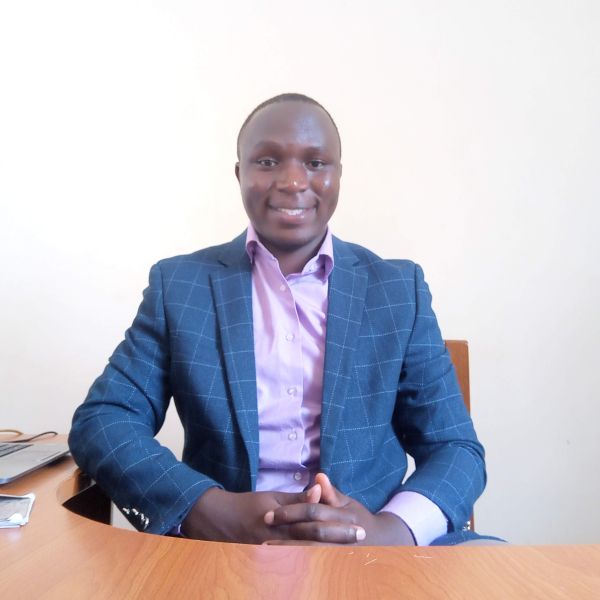Image

Siya (he/him/his) is currently the founder and director of EcoHealth180 in Uganda, an organization that works to prepare communities for potential disease outbreaks. He’s looking forward to sharing his knowledge in writing and publishing with the rest of the fellows. He brings experience in integrating public health, gender and nutrition within environmental conservation initiatives, environmental education in mountain communities, and engagement of healthcare service providers in environmental education.
Siya would like to travel to the Carpathian Mountains. Some things he likes to do outside of work include braaing (meat roasting) with friends and accompanying it with some good music and a drink.
Integrating Environmental Education Within Community-based Disease Surveillance System in Mountain Communities of Elgon Region (ECSEMER)
The Project
This project aims to enhance resilience to environment related hazards in mountain communities of Mount Elgon. Communities within the mountain areas of Elgon in Uganda mainly rely on agriculture as a source of livelihood. However, climate change has resulted into recurring hazard events within this area threatening the livelihoods of human populations. These hazards have been in form of drought events, landslides, pests and diseases among others. This calls for integrated solutions to realize equitable access to climate and environment related information within such communities in mountainous areas. The village health teams that are mandated in Uganda to report health related events provide an avenue for community engagement on environmental conservation and protection. This is because they live, work closely with communities, and interact with most households. Target materials will be developed to focus on the links between environment and disease outbreaks and will be designed to suit different groups. The trainings will be designed in an action-oriented format involving an activity that fits well within the subject areas. Recruitment of trainees will prioritize women as they are more vulnerable to environmental hazards compared to men.
Objectives
- To enhance integration of environmental conservation and protection within community-based disease surveillance.
- To enhance participation of school learners in environmental conservation. This mini grant will build on the ongoing work previously supported by Mountain Sentinels Network and from Human Centered Design Specialty Group of the American Association of Geographers.
- The project will specifically focus on training:
- An extra 400 Village Health Teams (VHTs).
- 1,200 high school students in one rural school on environmental conservation and protection.